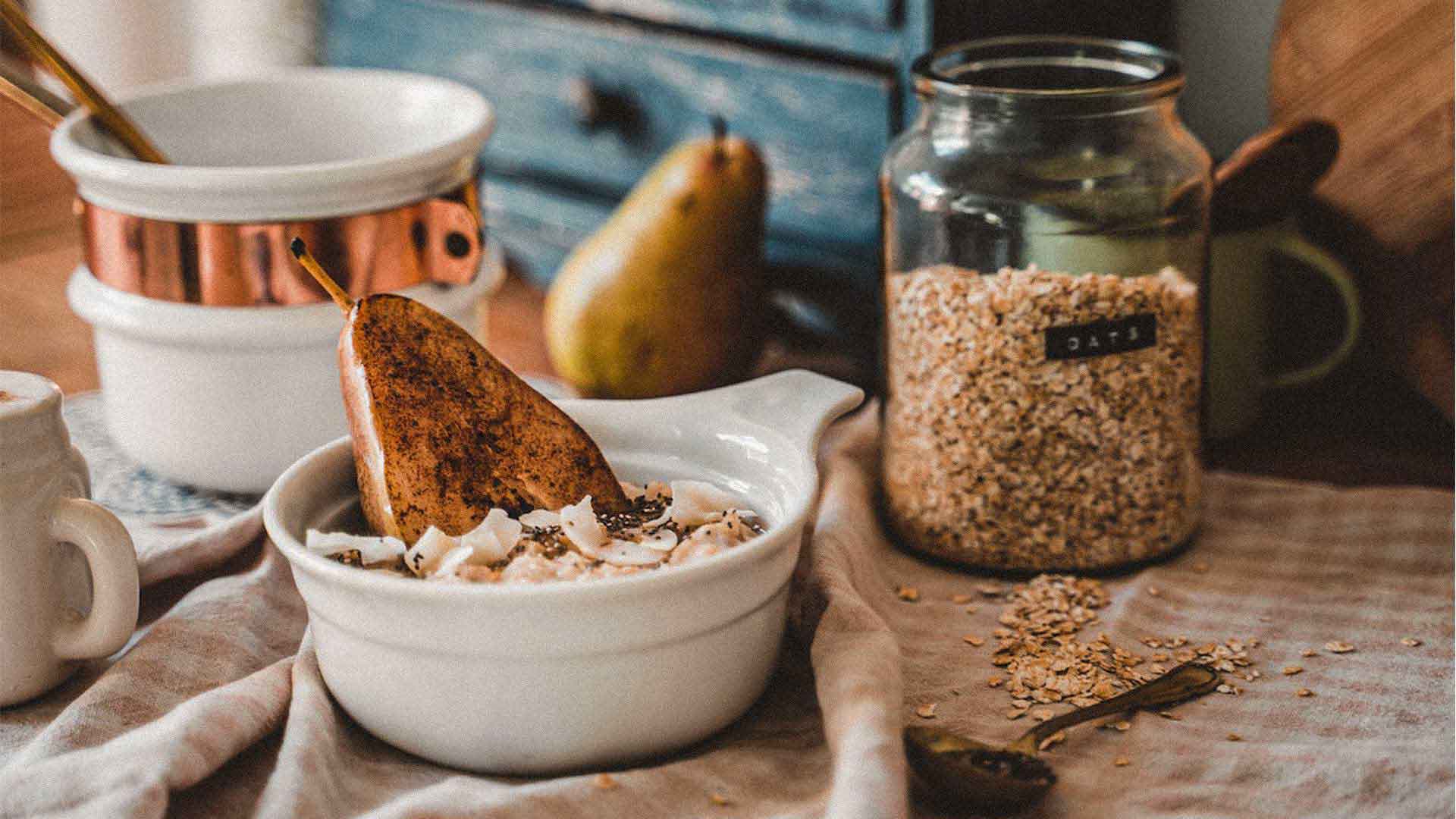Many of us are familiar with the benefits of probiotics, the good bacteria found in fermented foods like yogurt, kimchi and kombucha. But while probiotics get a lot of the spotlight when it comes to gut health, their lesser-known sidekick prebiotics are just as important. Prebiotics are types of fiber that feed those good bacteria already living in your gut to help them grow and flourish.
Here are 5 prebiotic-rich foods you should consider adding to your diet to keep your digestive tract in shape.
1. Garlic: rich in inulin
This pungent vegetable goes well with any dish, and it just happens to be rich in inulin, a type of prebiotic fiber. Your body can’t actually digest inulin; instead, it passes through your large intestine, where it acts as food for your good bacteria and encourages their growth.
This helps promote a healthy ratio of good to bad bacteria in your gut, improving the overall health of your digestive system, which can lessen bloating and irregularity, among other things. But it’s not just your gut that benefits. According to some research, inulin also appears to stimulate the production of immune cells, regulate blood sugar and improve calcium absorption.1
2. Dandelion greens: the prebiotic in your backyard
You might think of dandelions as nothing more than pesky weeds, but they’re actually a food source, packed with nutrients that deliver a host of health benefits. Dandelions are not only rich in inulin, but they also come with other prebiotic fibers called pectin and mucilage that promote regularity and a healthy inflammatory response. This promotes a strong gut barrier, helping your body absorb essential nutrients from food while keeping harmful pathogens out.
Try adding dandelion greens to your salad or smoothie for an easy, gut-healthy meal.
3. Oats: rich in beta-glucan
Oats aren’t just a breakfast favorite; they’re also a great source of beta-glucan, a type of prebiotic fiber. When you eat oats in the morning, this fiber passes through your small intestine and reaches the large intestine undigested, where it feeds your beneficial bacteria and makes them produce short-chain fatty acids (SCFAs). These are linked to a range of health benefits like improved gut barrier function and soft bowels (a good thing).
If you’re short on time in the mornings, make overnight oats by combining them with milk and fruit the night before.
4. Bananas: prebiotic superfood
When it comes to prebiotics, the humble banana is a superstar that often gets overlooked. Bananas have a type of prebiotic fiber called fructooligosaccharides (FOS), a non-digestible carbohydrate that promotes the growth of certain beneficial bacteria like Bifidobacteria and Lactobacilli. These can help improve digestion, immunity and even lower the risk of certain diseases.
So next time you’re looking for a quick and easy snack, reach for a banana! You’ll be helping your gut microbiome with every delicious bite.
5. Apples: rich in pectin & polyphenols
An apple a day keeps the doctor away—but did you know that it can also keep your gut microbiome happy? Apples are a great source of prebiotic fiber, specifically pectin, which helps your good bacteria thrive. They’re also rich in polyphenols, another prebiotic that fights free radicals, natural substances that can damage cells in your gut. This helps improve your gut barrier function to keep it strong and healthy.
To learn about probiotics, read: A full guide to probiotics from a dietitian
About Gabby
Gabby is a Nutritionist with a master’s degree in strategic communications. She loves using her nutrition-fluency with storytelling to encourage positive change. Before Persona, she worked at a mental health clinic helping clients manage stress, anxiety and other mental health issues through diet.
Gabby is just one of the many experts at Persona who are here to accelerate your wellness journey. If you have questions about nutrition or your personalized program, reach out now or book a free appointment with Gabby or another of our amazing nutritionists.
*These statements have not been evaluated by the Food and Drug Administration. This product is not intended to diagnose, treat, cure, or prevent any disease.
This information is not intended as a substitute for the advice provided by your physician or other healthcare professional, or any information contained on or in any product label or packaging. Do not use the information from this article for diagnosing or treating a health problem or disease, or prescribing medication or other treatment. Always speak with your physician or other healthcare professional before taking any medication or nutritional, herbal, or homeopathic supplement, or using any treatment for a health problem. If you have or suspect that you have a medical problem, contact your health care provider promptly. Do not disregard professional medical advice or delay in seeking professional advice because of something you have read in this article.

